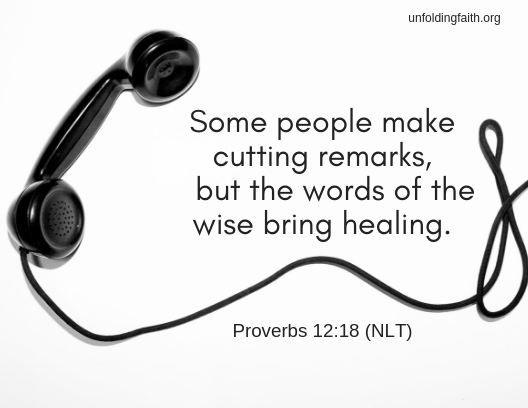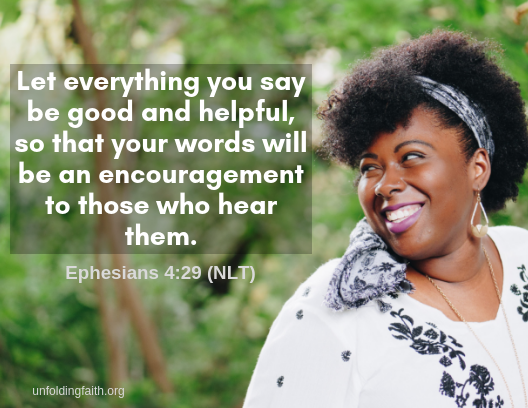
Learning to Let Go of Hurtful Words.
“Sticks and stones may break my bones, but words will never hurt me.”
Nonsense, right?! Words do hold the power to knock us over, to derail our minds, to sit and simmer within us for a very long time. Words can cause us to be angry and to react in a way we might not want, and they can even create a seemingly unresolvable rift between loved ones.
Hurtful words said to us, even jokingly, can be very painful, and learning to let go of what others say about us can be a very hard road to walk. But it is possible—with God and with grace.

Why do people choose to use hurtful words and put-downs toward us? It’s often hard to discern exactly why, but it’s possible the person who spoke to you like that is dealing with their own insecurities. Could they be projecting their self-perceived failures onto you?
How many times have you said something negative about someone else to make yourself look better in front of other people or to feel better about yourself? It’s easy to do—you get a little moment of release from your frustration or failure, and there’s no harm done, right? Well, we all know that’s not necessarily true.
And since we’ve all been guilty of using hurtful words toward another person, is it possible to extend grace toward someone who does that to us?
Granted, it may take some time to really assess the situation and determine that grace is required on your part, and it’s certainly not easy to get past anger, but do you really want to be that angry person? Is that who God wants you to be?

Take a little time to think about what was said to you. Honestly assess if there is any truth in what that person said. If there is, what can you do to avoid it being said again? And do you need to apologize for any part you played? Perhaps it’s worth asking the trusted people in your inner circle to help you determine what could be truth and what is false.
Is there any part of the hurtful words said that is simply not the truth? Could it be that the person who hurt you is seeing something differently or even incorrectly? Can it be resolved with an honest, open discussion?
If the words said to you were only spoken to hurt you, try to think about why that person might have said it to you. Could it be—as suggested earlier—that they are projecting their own pain and insecurities on you to make themselves feel better? While in no way should this condone what they did, reflecting on it like this can help us to offer that person Christlike grace.
The Bible tells us that spiritual health and training is just as important, in fact more so, than physical training: “Physical training is good, but training for godliness is much better, promising benefits in this life and in the life to come.” 1 Timothy 4:8 (NLT)
Yes, giving grace and forgiveness is very hard, and something you may not actually want to do. And it could take quite some time to reach that point. But it’s something we must all strive to do because God desires that we treat our fellow human beings the way He has treated us.

How about you counter the pain by giving out positive words of encouragement to others?
Finally, think about this: Who should we really be listening to? It’s easier to let the painful words of others go when we realize that God always speaks the truth to us. Proverbs 8:32 tells us that listening to God brings us lasting happiness: “Listen to me, for all who follow my ways are joyful” (NLT). Why would we choose to hold onto the pain of someone else’s words when we can take in the truthful words of our God?
Our friends at Way Nation discuss the impact of hurtful words, how God calls us to give grace, how we can listen to His messages about us, and how we can lift others up with our own words of encouragement.
Want to know more about the HelpFinder Bible featured in this video? You can check it out here >>
100
